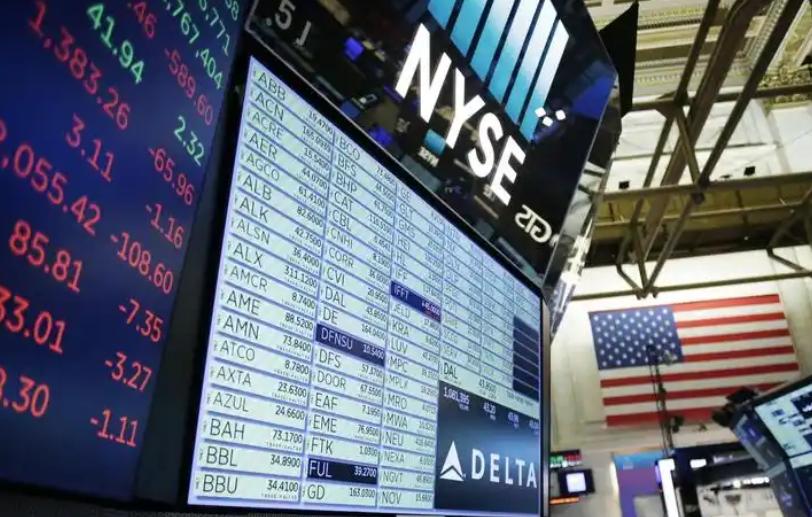
Today, the German DAX 30 index once again lived up to expectations, hitting a record closing high! Germany's DAX 30 index rose 0.44%, hitting a record closing high for the fourth consecutive session, to stand firmly at 20,994.82. The French index rose 0.27% and the British index rose 0.20%, also hitting a record closing high for the second consecutive session. Europe's STOXX 600 index gained 0.05% and the euro zone STOXX 50 index gained 0.31%. As the economic leader of Europe, Germany's manufacturing, automotive and other industries are in a leading position in the world. With the gradual recovery of the global economy, German enterprises have ushered in unprecedented development opportunities. The rise in the stock market not only improves the financing ability of enterprises, but also further enhances investor confidence, providing a very strong support for the continued growth of the German economy. At the same time, the UK's Brexit policy has also promoted the rise of the stock market to a certain extent. After Brexit, the British government implemented a series of policies to attract international investment and talent, which also injected new vitality into the stock market, enabling the British stock market to surge all the way.
The event that the German and British stock markets continued to hit a record closing high also had a very complex and multi-faceted impact on other fields such as economy and finance. The first is the impact on Germany and the UK. The record high of the German and British stock markets will significantly enhance the confidence of domestic investors and make them more optimistic about the development prospects of their own economies. This increase in confidence helps stabilize market sentiment and reduce panic selling, thus maintaining the stable operation of the market. A rise in the stock market often means an increase in wealth, which may stimulate consumers' desire to spend and willingness to invest. Companies may also have easier access to financing because of rising stock prices, which in turn can expand production and investment and boost economic growth. The stock market boom could have implications for the central bank's monetary policy. If the stock market rises too fast, it could trigger economic problems such as inflation, prompting the central bank to tighten monetary policy to curb economic overheating. However, if the rise in the stock market reflects the economy's true growth potential, the central bank may continue to keep monetary policy loose to support economic growth.
The second is the impact on the global economy and financial markets. The record high of the German and British stock markets may have a demonstration effect, driving the stock markets of other countries and regions to rise. This demonstration effect will help boost global investor confidence and promote global economic recovery and growth. A rising stock market could attract more international capital to Germany and Britain, boosting economic growth in both countries. At the same time, this capital may also look for investment opportunities on a global scale, promoting the efficient allocation of global capital. Germany and the UK are important players in the global economy, and a rise in their stock markets could boost their international trade competitiveness. This helps to promote the prosperity and development of global trade. Meanwhile, record highs in Germany and the UK are likely to increase volatility. On the one hand, more investors piling into stocks could push prices higher; On the other hand, if economic fundamentals fail to support such a rise, stock prices could suffer a correction. Therefore, investors need to carefully assess market risks and formulate reasonable investment strategies. The boom in the stock market helps to improve the stability of financial markets. However, if the stock market rises too fast or there is a risk of a bubble, it can pose a threat to the stability of financial markets. Therefore, regulators need to strengthen the supervision of the market to prevent market manipulation, insider trading and other illegal activities.
The third is the impact on investors, the German and British stock markets have provided investors with more investment opportunities. Investors can share in the gains of a rising stock market by buying the underlying stocks or funds. However, investors need to carefully assess their risk tolerance and investment objectives and avoid blindly following the trend or over-speculating. A rising stock market also means an increase in investment risk. Investors need to pay close attention to the changes in market dynamics and economic situation, and timely adjust their investment strategies to cope with potential market risks.
To sum up, the continuation of the record closing high of the German and British stock markets will have a multi-faceted impact on the domestic economy, the global economy, financial markets and investors. Therefore, investors and policymakers need to pay close attention to changes in market dynamics and the economic situation in order to formulate reasonable investment strategies and policy measures to cope with these effects.

Europe's economy in 2025 exhibits a distinct feature of "superficial stability and deep-seated divergence."
Europe's economy in 2025 exhibits a distinct feature of "su…
Russian President Vladimir Putin said that Russia has obser…
According to data from a South Korean think tank, as of the…
Winter storms have hit parts of the Great Lakes and the nor…
The British government said that the UK has signed a joint …
Iranian state media reported that Russia's Soyuz carrier ro…